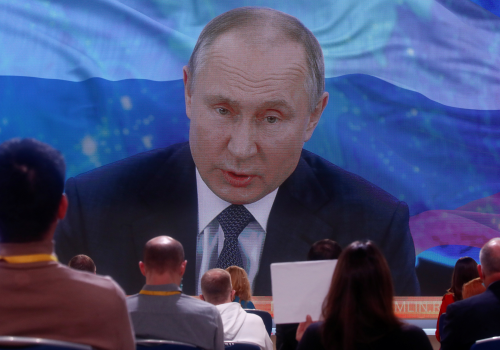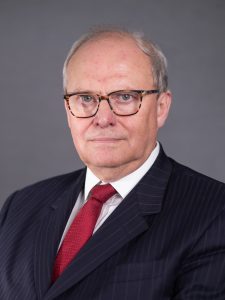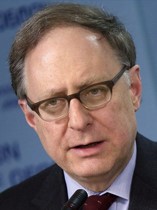When the Soviet system collapsed, Russia’s new government struggled to build a modern, well-functioning state. After more than two decades, President Vladimir Putin’s rule has transformed Russia into an authoritarian kleptocracy, in which a small ruling elite has usurped all power and most wealth. We do not know when or how Putin’s regime will end, but it is struggling—and its end could come in the foreseeable future. This final stage may last years, but we need to start discussing how to rebuild Russia’s institutions on the ruins of the old system. In a new report, Dr. Anders Åslund and Dr. Leonid Gozman suggest what should be done after Putin’s rule ceases in order to end Russia’s alienation and make Russians feel that their country is theirs. Which are the most critical reforms that will set Russia up for a path to growth, equal treatment under the rule of law, and newfound prosperity?
This event features the authors, Dr. Anders Åslund, resident senior fellow at the Atlantic Council’s Eurasia Center, and Dr. Leonid Gozman, a Russian politician and political commentator. Ambassador Alexander Vershbow, distinguished fellow at the Atlantic Council’s Scowcroft Center for Strategy and Security and former deputy secretary general of NATO, Vladimir Kara-Murza, chairman of the Boris Nemtsov Foundation for Freedom and vice president of the Free Russia Foundation, and Kirill Martynov, deputy editor of the independent Russian newspaper Novaya Gazeta are discussants. Susan Glasser, staff writer at the New Yorker, moderates.
RELATED experts


The Eurasia Center’s mission is to enhance transatlantic cooperation in promoting policies that strengthen stability, democratic values, and prosperity in Eurasia, from Eastern Europe in the West to the Caucasus, Russia, and Central Asia in the East.


